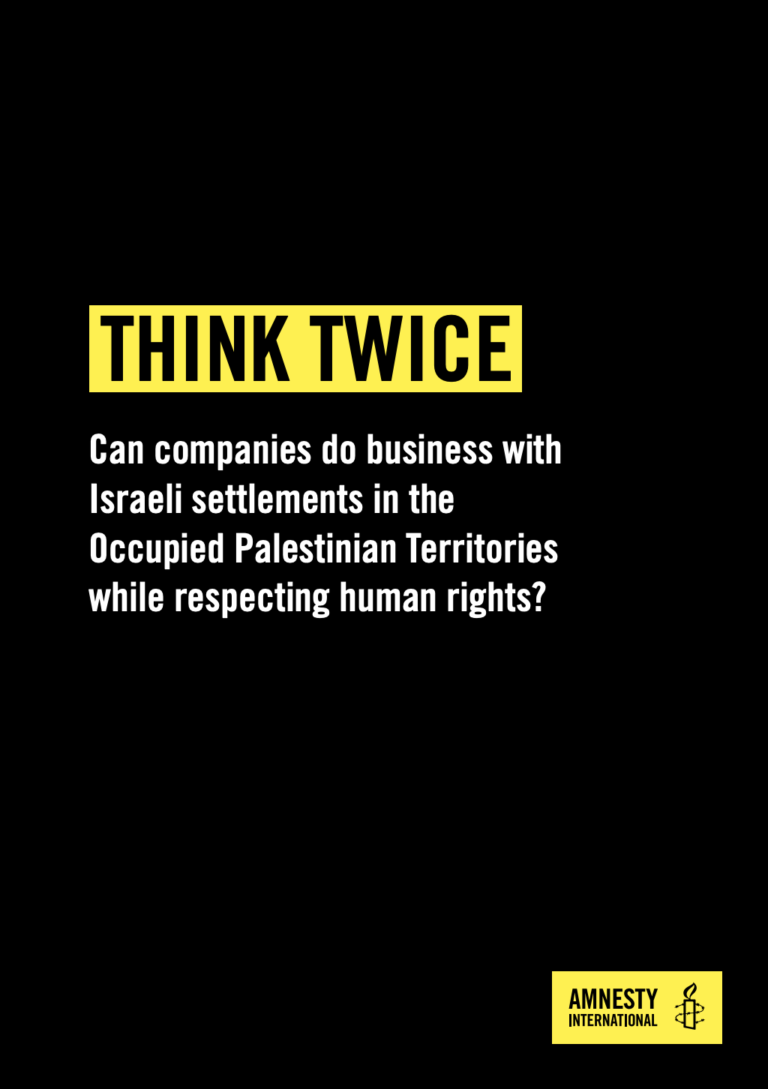Addressing the Retention of Identity Documents
GuidanceGood PracticesThis document calls on businesses to prohibit worker document retention and gives best practice guidance.
Doing business in occupied territories carries with it risks, dilemmas and potential liabilities for companies. The sources of information available to companies to address these risks are limited.
This briefing is intended to provide companies with a framework for examining their business interests and relationships with Israeli settlements in the Occupied Palestinian Territories. It covers issues that are relevant to companies in all industry sectors and at all stages of their trade and investment relationships with these settlements. It reflects a growing trend of criminal and civil cases against businesses based on their alleged complicity in serious human rights violations, including war crimes.
Amnesty International expects companies to make business decisions that align with applicable international laws and standards and that meet their responsibilities within that framework. This briefing explains how these laws, standards and responsibilities apply to the situation in the Occupied Palestinian Territories.

This document calls on businesses to prohibit worker document retention and gives best practice guidance.
To explain how it expects its suppliers to live up to its Standards, Adidas has produced a number of supporting guidelines that detail its expectations for fair, healthy, safe workplace conditions and environmentally sound factory operations. T...Read More
In 2012, the Directive 2012/29/EU of the European Parliament and of the Council of 25 October 2012 establishing minimum standards on the rights, support and protection of victims of crime Union - the socalled Victims' Rights Directive -, that create...Read More
2020 was a year unlike any other. This report documents what happened to garment workers across Asia – in Sri Lanka, Pakistan, India, Indonesia, Cambodia and Bangladesh, putting numbers to the 25 per cent or so wage losses suffered by these worker...Read More